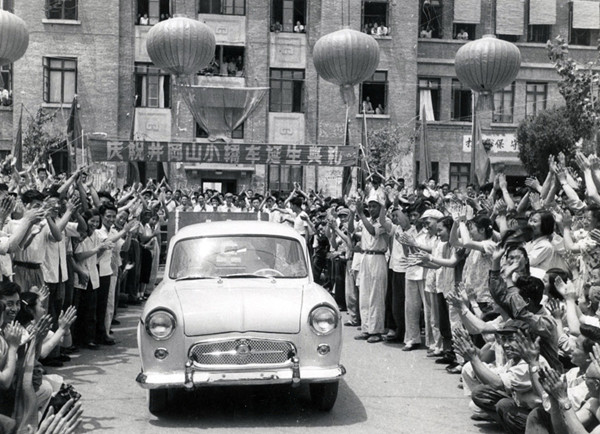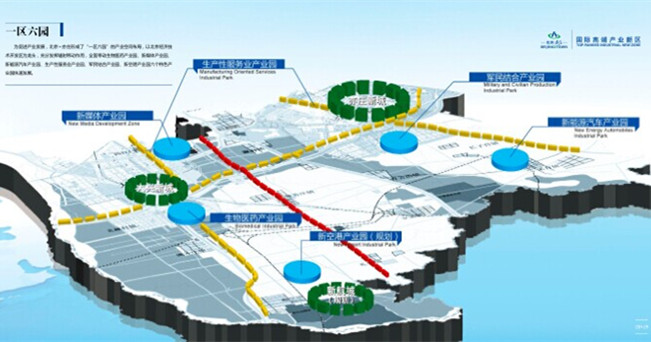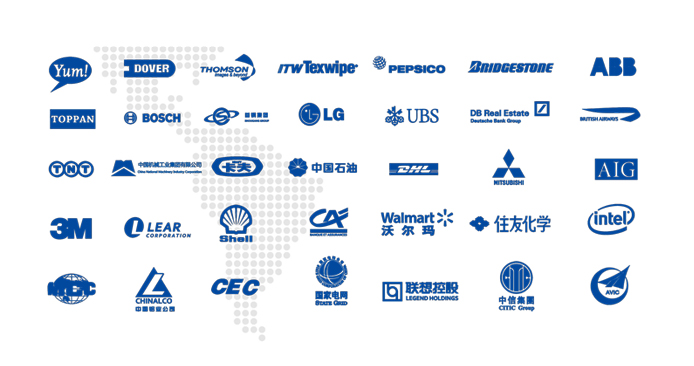BAIC revs up tech drive
( chinadaily.com.cn )
 |
|
A ceremony for the first sedan produced by Beijing No 1 Automobile Accessory Factory, the predecessor of BAIC Group, is seen on June 20, 1958. [Photo provided to chinadaily.com.cn] |
Sun Fuquan, a researcher at the Beijing-based Chinese Academy of Science and Technology for Development, said both the supply side and demand side are fostering the increasing application of intelligent connectivity of China's automobile industry.
He said the intelligent technology will reshape the automotive industry's value chain, creating huge commercial value as well as a network connecting automobiles. That network will become the world's third largest, after those linking computers and smartphones.
"We found that many young consumers rely heavily on the internet and pay close attention to a car's connectivity when deciding what to buy," said Sun.
With the Chinese government fostering the development of intelligent connected vehicles, several cities have enacted laws and regulations for autonomous driving trials, including Beijing, Shanghai, Chongqing, Guangzhou and Shenzhen in Guangdong province, and Changchun in Jilin province.
China welcomes more countries to participate in the development of the country's intelligent connected vehicles sector, including activities related to technology, manufacturing, talent and safety supervision, according to the Ministry of Industry and Information Technology.
The ministry predicted that the market scale of China's intelligent connected vehicles sector will exceed $14 billion by 2020.
The country is striving to cultivate a globally competitive internet-connected vehicles industry, planning to have intelligent cars with partial or fully autonomous functions account for 50 percent of the new vehicles sold in the country by 2020.
After six decades of development, BAIC currently employs over 130,000 staff worldwide and has built more than 20 plants and research and development centers in South Africa, Mexico, India, Japan, the Netherlands, Spain, Germany, Italy and the United States.
It sold 2.51 million vehicles globally in 2017, netting $68.9 billion in revenue.
 The Area with Six Parks
The Area with Six Parks Global Top 500
Global Top 500